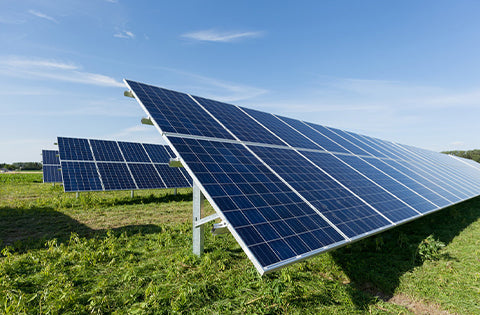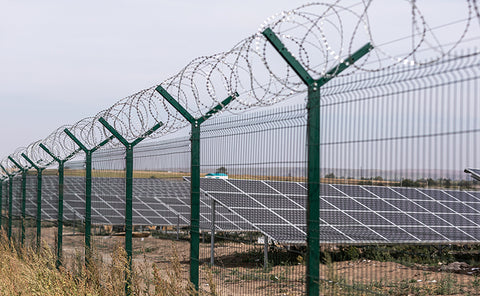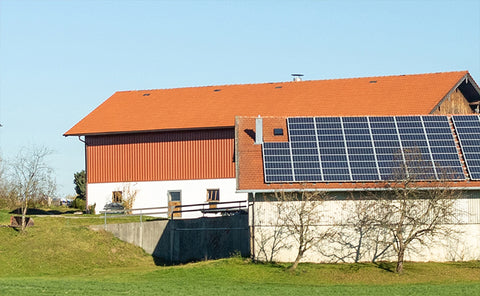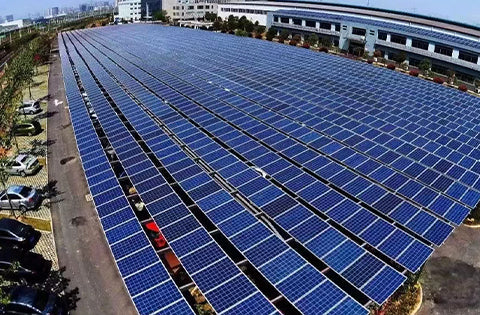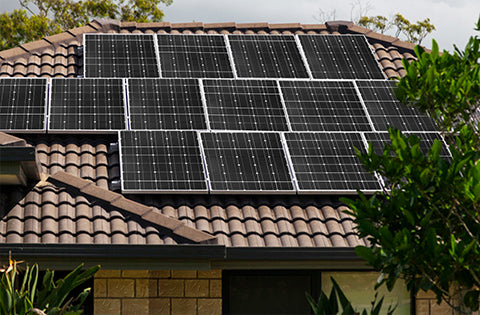When refers to solar system, the first questions for many solar starters is choosing grid-tied or off-grid. And this determines whether you plan to remain tied to the grid or want to fully break free of utilities.
Here are several factors you need to consider when choosing off-grid or grid-tied solar system on your farm:
1: Remoteness
The further away you are from utilities, the less feasible grid-tied installations become. Energy companies sometimes charge tens of thousands of dollars to connect power lines along the street. Imagine attempting this if you live a half-mile or several miles away. In this case, an off-grid solar installation makes the most sense and can save you thousands of dollars.
2: Space availability
When debating off-grid vs. on-grid solar, note that the roofs of buildings may not provide enough solar panel space for off-grid living. If you have a small farm or minimal land left for solar panel placement, off-grid systems might not be feasible. Farms with large plots of unused land also need to consider tree growth. Cutting down trees to place solar panels can negatively impact long-term sustainability goals.
3: Power consumption
The more power your farm uses, the more difficult it may be to give up reliance on the grid and fossil fuels. For example, powerful machines drawing 1,000 watts or more will quickly drain batteries on cloudy days or after dark. The best way to tackle this is to find lower-consumption alternatives. Generators can also supplement off-grid usage.
4: Compatibility
When exploring off-grid vs. on-grid solar, determine how many of your power systems you can replace with solar energy. Some of the first to consider include freezers, water pumps, water heaters, sprinklers, and lights. One of the biggest concerns in southern climates is powering AC units. Farmers can get around this by installing swamp coolers in dryer climates or considering geothermal heating and cooling wherever possible.
5: Return on investment
Both options provide an excellent return on investment when it comes to off-grid vs. on-grid solar. What makes the difference is how long you can wait to reap the benefits. You will break even faster with an on-grid system because the initial investment is lower. However, you’re missing out on achieving higher returns over the long term.
6: Budget
Ultimately, the money you have available to fund your solar system may determine where you fall in the off-grid vs. on-grid solar debate. The batteries required for an entirely off-grid installation can be expensive. Keep in mind that you can expand your system over time to improve self-reliance and wean yourself off the grid.
Working with professionals can help you determine whether off-grid vs. on-grid solar is right for you. We at SOLARPARTS specialize in helping homeowners, farmers, and businesses discover independence through solar. Contact us today to know more!
Twitter: Solarparts Instagram: Solarparts
Tumblr: Solarparts Pinterest: Solarparts
Facebook: Shenzhen Solarparts Inc
Email address: Philip@isolarparts.com
Homepage: www.isolarparts.com
